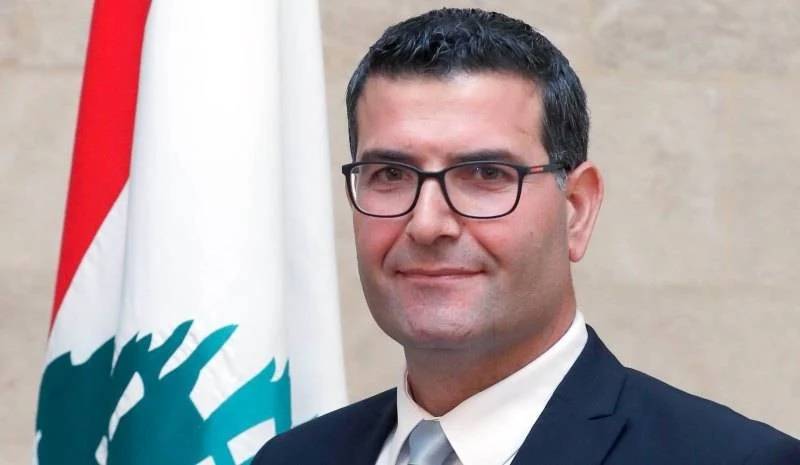
Agriculture Minister Abbas Hajj Hassan. (Credit: NNA)
BEIRUT — Agriculture Minister Abbas Hajj Hassan said in an interview with the Amal Movement’s National Broadcasting Network channel that on Tuesday the ministerial session of the Food Security Committee will determine the government’s ability to secure the “food basket in full” thereby ensuring the “first step” to food security. Hajj Hassan described the food basket as being “all the citizens’ daily needs, which includes oil, sugar, herbs, wheat, flour, fruit.”
Here's what we know:
• Speaking about Lebanon’s food security, Hajj Hassan assured citizens that “there is no crisis today in Lebanon.” And that things are “good,” while pointing out that some wheat prices will be “a little higher,” which he considers to be a normal thing as “there is a global crisis and everyone knows about it.”
• He also stressed that the Agriculture Ministry is designing a national basic plan for wheat production, cultivation, aid and storage, which aims to raise the local production capacity “to 30 or 40 percent of the local market’s need, and motivating farmers in this context.”
• Concerning the high prices of vegetables, especially cucumbers and tomatoes, Hajj Hassan pointed out that the cold wave that swept Lebanon in recent weeks delayed the entry of some products that are usually “naturally present” at this time of the year in the markets, but that imports from Syria, Jordan and other Arab countries are continuing.
• The agriculture minister, who belongs to the Hezbollah party, promised, on behalf of his ministry, that products will be imported from abroad in “double quantities,” especially at the beginning of the month of Ramadan,” and that efforts will be made in conjunction with the security forces, the Economy Ministry and all bodies to reduce the current “very high” prices. To this end, he said, he had yesterday signed for more than a thousand tons of vegetables of all kinds to be imported from Syria and Jordan.
• Last year’s Ramadan’s celebrations, the first to occur after the country started spiraling into an economic crisis, were dampened by the dizzying increases in the cost of even the most simple of staples, leaving many unable to partake in a basic Iftar meal. Many fear, since the economic situation has only worsened since last year, that what should be a period of celebration will instead be turned into a stark reminder of the country’s seemingly worsening woes.
• The American University of Beirut’s Crisis Observatory calculated last year that a month of iftar meals cost 2.5 times the minimum wage when the exchange rate of the dollar hovered around LL13,000 in the parallel market. Almost exactly a year later, that same dollar is worth LL25,000, almost double.
• While the exchange rate did not change much during the week of Ramadan last year, food prices between the first day and the eighth day of the holy Islamic month ballooned by 25 per cent, the Crisis Observatory report found.